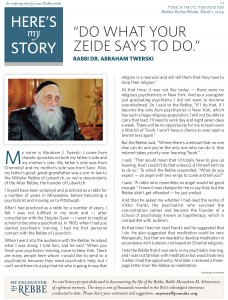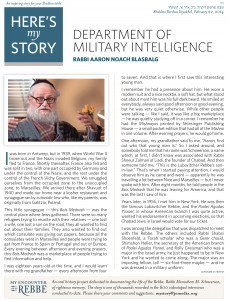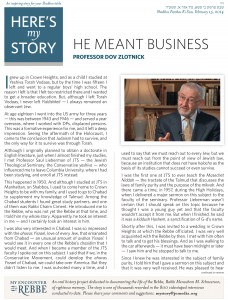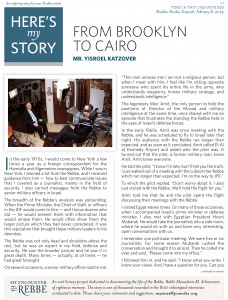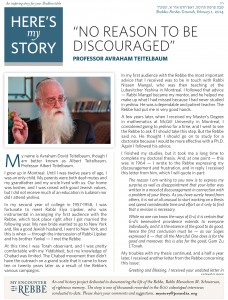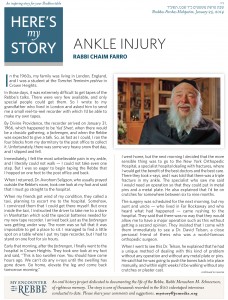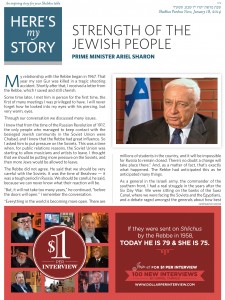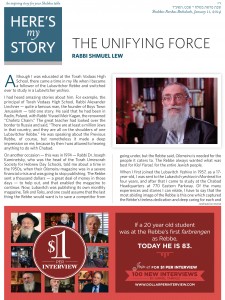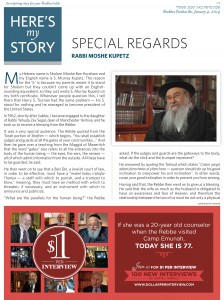HMS: “Do What Your Zeide Says To Do.”
My name is Abraham J. Twerski. I come from chasidic dynasties on both my father’s side and my mother’s side. My father’s side was from Chernobyl and my mother’s side was from Sanz. Also, my father’s great- great-grandfather was a son-in-law to the Mitteler Rebbe of Lubavitch, so we’re descendants of the Alter Rebbe, the founder of Lubavitch.
I myself have been ordained and practiced as a rabbi for a number of years in Milwaukee, before becoming a psychiatrist and moving on to Pittsburgh.
After I had practiced as a rabbi for a number of years, I felt I was not fulfilled in my work and – after consultation with the Steipler Gaon – I went to medical school to become a psychiatrist. In 1960, when I had just started psychiatric training, I had my first personal contact with the Rebbe of Lubavitch.
When I went into the audience with the Rebbe, he asked what I was doing. I told him, and he said “When you finish your psychiatric training, move to New York. There are many people here whom I would like to send to a psychiatrist because they need psychiatric help, but I can’t send them to a psychiatrist who is going to say that religion is a neurosis and will tell them that they have to drop their religion.”
At that time, it was not like today – there were no religious psychiatrists in New York. And as a youngster just graduating psychiatry, I did not want to become overwhelmed. So I said to the Rebbe, “If I do that, if I become the only frum psychiatrist in New York, which has such a huge religious population, I will not be able to carry that load. I’ll need to work day and night seven days a week. There will be no opportunity for me to learn even a little bit of Torah. I won’t have a chance to ever open a Jewish text again.”
But the Rebbe said, “Where there’s a mitzvah that no one else can do and you’re the only one who can do it, that mitzvah takes priority over learning Torah.”
I said, “That would mean that I’d totally have to give up learning. And I couldn’t do that unless G-d Himself told me to do so.” To which the Rebbe responded, “What do you expect – an angel with two wings to come and tell you?”
I said, “A rabbi who resembles an angel would be good enough.” I know it was chutzpa for me to say that, but the Rebbe didn’t get offended – he just smiled. (more…)


